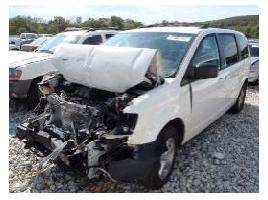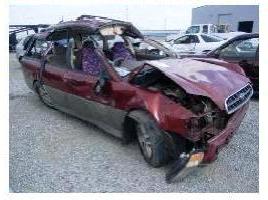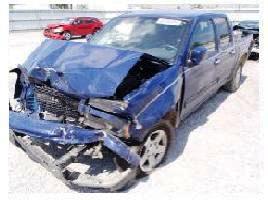Ask an Attorney a Question for FREE!
Connecticut Accident Law
The Connecticut Accident Law requires that claims compensations be determined by a jury in a court of law. The jury will make the decision on how much compensation will be awarded and the kinds of damages the compensation will cover for.
Ask a Lawyer Now!
|
|

Connecticut State laws put no maximum limit on the amount of compensation awardable to an injured. This is applicable for both economic losses and non-economic losses.
There are a lot of ways to file a lawsuit in Connecticut. You may file a case in the small claims court or in the local court of the city where the auto collision occurred. You may also file a case against the responsible party in the local court of the city where resides or in the city where he works.
Connecticut accident law allows for a statute of limitations of two years for personal injury claims. The 2-year countdown begins with the date the bodily injury was first discovered. Failure to take legal action within the specified statute automatically makes the insurance claim an invalid one.
When in an accident with multiple government entities wherein you are unsure which government entity was at fault, file an insurance claim against each of the entities involved.

This especially is the case when you sustained injuries from a car accident with a government employee while said employee is driving a government vehicle. In other words, you have a possible personal injury claim with the government agency the employee works for and the city, state, town or university the government agency belongs to. Getting in a vehicular accident with a police officer in pursuit of a criminal is a common example for this situation.
Connecticut Accident law defines a set of procedures you must follow when filing an insurance claim against a government entity. First, you are to file an insurance claim with the Office of the Claims Commissioner. Submit duplicate copies of your claim to the clerk. The said claim should include the name and address of the liable party – the government employee and the agency that employs him.
If you are filing an insurance claim in behalf of another, like in the case where the injured party is a minor, the claim should also include their name and address. Information such as the succinct statement of the insurance claim, accident details (the date, venue and time of the collision), the damages requested and the request to take legal action should be in the claim you submit to the Office of the Claims Commissioner.

Insurance Claims that requests damages that are less than $5,000 should include a money order or a bank check for $25. For claims damages that exceed $5,000, a money order or a bank check of $50 should be addressed to the Office of the Treasurer of the State of Connecticut.
Connecticut Accident law may be different from the accident laws of other states. To know the procedures and statutes of limitations of other states, contact the Department of Insurance where you want to file your case in.
| Connecticut Accident Law | |
| Jurisdiction | Modifed Comparative --51 % Rule |
| Liability Insurance required? | Yes |
| Personal injury liability maximum for one person injured in an accident. | $20,000 |
| bodily injury liability maximum for all injuries in one accident. | $40,000 |
| property damage liability maximum for one accident. | $10,000 |
| PIP required? | Yes |
| No-fault state? | No |
| Uninsured motorist coverage required? | Yes |
| Bodily Injury Statue Of limitations | 2 years |
| Property Damage Statute of Limitation | 2 years |
| Small Claims Court Maximun Limit | $5,000 |
Back to all 50 states insurance laws and regulations.
|
For a Free Review of Your Case
Please Call (866) 878-2432 |


